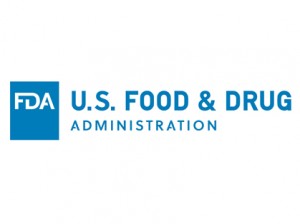FDA: Interdisciplinary Scientific Cooperation Will Lead the Way to Understanding of Non-Hereditary DCM in Dogs
 On September 29, 2020, scientific experts from academia, industry, and veterinary medicine came together to participate virtually in a scientific forum hosted by Kansas State UniversityExternal Link Disclaimer (KSU) examining potential causes of non-hereditary canine dilated cardiomyopathy (DCM) in dogs. The event was a forum where scientists with research into DCM could share information, collaborate, and discuss many different – and even conflicting – theories on the condition. It is so encouraging to see the shared commitment to understanding non-hereditary DCM in dogs using multidisciplinary scientific approaches. FDA; the veterinary community, especially veterinary nutritionists and veterinary cardiologists and other specialists; industry and academia continue to examine this issue to help determine what factors may be contributing to the heart conditions observed and reported to FDA.
On September 29, 2020, scientific experts from academia, industry, and veterinary medicine came together to participate virtually in a scientific forum hosted by Kansas State UniversityExternal Link Disclaimer (KSU) examining potential causes of non-hereditary canine dilated cardiomyopathy (DCM) in dogs. The event was a forum where scientists with research into DCM could share information, collaborate, and discuss many different – and even conflicting – theories on the condition. It is so encouraging to see the shared commitment to understanding non-hereditary DCM in dogs using multidisciplinary scientific approaches. FDA; the veterinary community, especially veterinary nutritionists and veterinary cardiologists and other specialists; industry and academia continue to examine this issue to help determine what factors may be contributing to the heart conditions observed and reported to FDA.
KSU has posted materialsExternal Link Disclaimer from various presenters at the scientific forum to make them available to the public. This includes my opening remarksExternal Link Disclaimer and a presentationExternal Link Disclaimer by a team of FDA scientists about a subset of DCM cases that made full or partial recoveries.
I am pleased that KSU and many of the presenters agreed to share their scientific work with all stakeholders as a matter of transparency. I want to emphasize that this is not an investigative update; it’s an inflection point that provides FDA with an opportunity to clarify and emphasize the following points:
- Historically, DCM has been primarily linked to genetic predisposition in certain breeds, but in the context of these atypical cases, emerging science appears to indicate that non-hereditary DCM is a complex medical condition that may be affected by the interplay of multiple factors such as genetics, underlying medical conditions, and diet.
- FDA has not taken regulatory action against or declared any specific pet food products unsafe or definitively linked to DCM. As the scientific community looks further into the role that diet may play in these cases, we hope to explore additional avenues about ingredient levels, nutrient bioavailability, ingredient sourcing, and diet processing to determine if there are any common factors. We have asked pet food manufacturers to share diet formulation information, which could substantially benefit our understanding of the role of diet.
- If there is one point I want to drive home, it’s that the best thing you as a pet owner can do is to talk to your veterinarian about your dog’s dietary needs based on their health and medical history.
FDA sees this as an ongoing, collaborative, multidisciplinary scientific venture, of which we have just one piece as the regulator of animal food and reviewer of adverse event reports received as part of the pet food early warning and surveillance system. The scientific community engaged on DCM continues to assess the available information and fill data gaps to determine what factors may contribute to the development of non-hereditary DCM. We look forward to continued engagement with scientists as opportunities arise. FDA will provide additional updates if or when substantive scientific information comes to light.
I am encouraged and optimistic that multidisciplinary collaborators will continue to exchange information and engage each other to put forth their best research and thinking, so that we all can gain a fuller understanding of non-hereditary DCM.
Short URL: https://caninechronicle.com/?p=193693
Comments are closed












